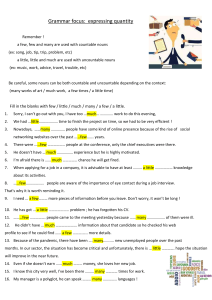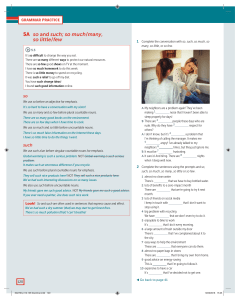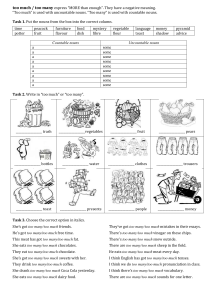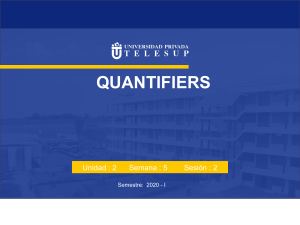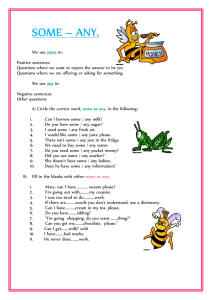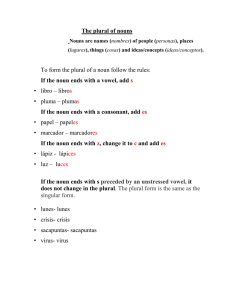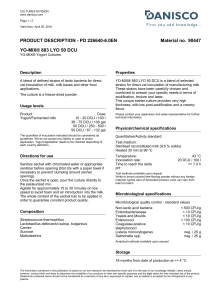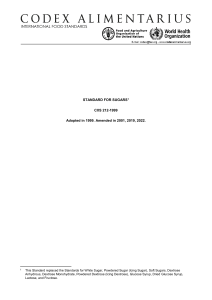Some, Any, Much, Many: English Quantifiers Worksheet
Anuncio
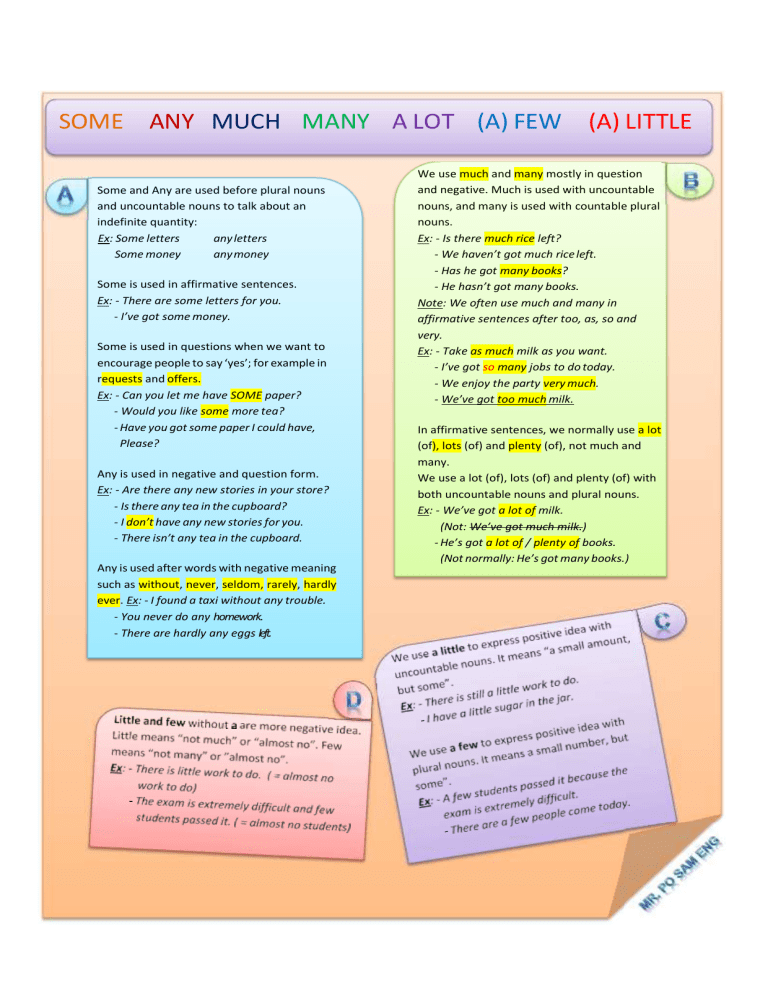
SOME ANY MUCH MANY A LOT (A) FEW Some and Any are used before plural nouns and uncountable nouns to talk about an indefinite quantity: Ex: Some letters any letters Some money any money Some is used in affirmative sentences. Ex: - There are some letters for you. - I’ve got some money. Some is used in questions when we want to encourage people to say ‘yes’; for example in requests and offers. Ex: - Can you let me have SOME paper? - Would you like some more tea? - Have you got some paper I could have, Please? Any is used in negative and question form. Ex: - Are there any new stories in your store? - Is there any tea in the cupboard? - I don’t have any new stories for you. - There isn’t any tea in the cupboard. Any is used after words with negative meaning such as without, never, seldom, rarely, hardly ever. Ex: - I found a taxi without any trouble. - You never do any homework. - There are hardly any eggs left. (A) LITTLE We use much and many mostly in question and negative. Much is used with uncountable nouns, and many is used with countable plural nouns. Ex: - Is there much rice left? - We haven’t got much rice left. - Has he got many books? - He hasn’t got many books. Note: We often use much and many in affirmative sentences after too, as, so and very. Ex: - Take as much milk as you want. - I’ve got so many jobs to do today. - We enjoy the party very much. - We’ve got too much milk. In affirmative sentences, we normally use a lot (of), lots (of) and plenty (of), not much and many. We use a lot (of), lots (of) and plenty (of) with both uncountable nouns and plural nouns. Ex: - We’ve got a lot of milk. (Not: We’ve got much milk.) - He’s got a lot of / plenty of books. (Not normally: He’s got many books.) 1. 1. John hasn’t got much money. 2. 2. 3. 3. I haven’t got 4. 4. There aren’t 5. 5. Are there 6. 6. Jane spends _ 7. 7. Have you got 8. 8. Are there _ 9. 9. We are early. We have _ birds in the sky! cars in the street. apples on the tree? _money at the shops. _bread in the cupboard? _children on the beach? 1. lemonade 2. men time. 3. EXAMPLE: (Ask for coffee) 4. _ Could I have some coffee? 1. (Offer cookies) sweets 7. _ friends Have yourself 5. 2(Offer rice) 6. women money 8. houses 9. snow 3(Ask for tomatoes) 4(Offer more potatoes) 5(Ask for more milk) 1. 1. I haven’t got time. 2. Do you play football? 3. I don’t eat meat. 4. There aren’t 1. Have you got friends? 2. There are _ people in the room. 3. Can I have 4. How sugar, please? oranges are on the table? people here. 5. 6. Are there Americans in your country? 7. Have you travelled to 8. Was there countries? traffic on the road? 6. There are _ monkeys at the zoo. 1. 2. 3. 4. 5. 6. 7. 8. 9. 10. 11. 12. There are ______ students in the dining room. Would you like______ tea? There aren’t ______ interesting people at the meeting. Are there ______ tomatoes left? Have you got ______ bread? Could I have ______ bread, please? There is ______ sugar on the table. Are there ______ pretty girls in the class? I don’t think I have ___________ milk left; would you prefer ______ fruit juice? Julie can speak ______ French but she can’t speak any Spanish. I can lend you ______ money if you want. We haven’t got ______ eggs. 1. 2. 3. 4. 5. 6. 7. 8. 9. 10. 11. 12. ______ ______ ______ ______ ______ ______ ______ ______ ______ ______ ______ ______ 1. 2. 3. friends do you have? sugar does Mum need for the cake? money have you spent? lumps of sugar do you put in your coffee? people were on strike? does it cost? petrol can you put in the tank? exercises did the teacher give us? children are there in your son’s class? sandwiches shall I prepare? television does he watch every day? water do you drink every day? Our art teacher is disappointed: very _______ parents came to see our exhibition. I have _______money, at least enough to buy you an ice cream. You have worked too _____ and have completed very _______ exercises; I would like you to do some more. 4. Although I am a new student, I have got _______friends whom I can rely on. 5. Hurry up! We have very _______ time left. 6. Betty knows _______ French ; it is not enough to get around Paris. 7. I managed to get _______information on him; now I know a bit more. 8. She is always on her own; she has very _______ friends. 9. I usually have _______wine with my lunch, the doctor told me it’s good for my health! 10. I don’t like Mrs. Spencer, our new math teacher; she has very _______ patience. 11. They have watched that film _______times; they said it’s good. 12. Are you sure you can drive? Yes, I have had _______ drinks but don’t worry I am not drunk!
